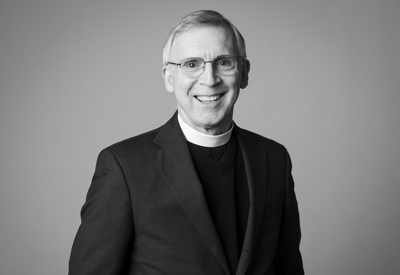
Dear Friends,
It’s Labor Day weekend. You’re going to have people tell you that it’s the end of summer, but don’t believe them. The actual first day of fall isn’t until September 22, and even then, Ohio usually offers a number of pleasantly warm days in early October. But the fact is things are changing. School buses are rolling, road construction crews are finishing their projects, and the hours of daylight are growing shorter.
In last Sunday’s New York Times, Melissa Kirsch noted that, “Labor Day arrives and we shift gears, shift wardrobes and menus and mind-sets. Maybe our gaits get faster. Summer self is self-indulgent; fall self is all determination. Summer self puts things off and fall self gets things done.” I recognize myself in the mirror she’s holding up, and perhaps you do, too.
If Labor Day represents a quickening of tempo, it also represents an opportunity to reflect on work. In the late 1800’s, before President Grover Cleveland made Labor Day a national holiday in 1894, many Americans worked twelve hours a day, seven days a week. Children worked right alongside adults on farms, and in factories and mines. Most people in the United States don’t work like that anymore. Yes, the Labor Department uncovers abuses from time to time – sometimes of children, more often of immigrants. But the incidents are rare.
The late Studs Terkel, host of his own well-known radio program in Chicago between 1952-1997, wrote Working: People Talk About What They Do All Day and How They Feel About What They Do, in 1974. He interviewed more than 100 people for the book – everyone from gravediggers to studio heads. How did people feel about their working lives? How did work fit into American life? Studs, in his inimitable fashion, explored these questions and others with a farmer, a strip miner, a hotel switchboard operator, a hooker, a garment maker, and a host of others. Although there were a fortunate few among those he interviewed who loved their work, most found plenty not to love, and Studs got an earful about those things simply because he was willing to listen.
In the introduction to Working, Terkel refers to the story of Adam and Eve: “To earn one’s bread by the sweat of one’s brow has always been the lot of mankind. At least, ever since Eden’s slothful couple was served with an eviction notice. The scriptural precept was never doubted, not out loud. No matter how demeaning the task, no matter how it dulls the senses and breaks the spirit, one must work. Or else.”
How do you think about the work you do? Or did? How many jobs have you held? What do you like about working? Not like? Wish was different? And, thinking about work more broadly, how can we make sure that workers of all different kinds of experience dignity and fair compensation?
The Book of Common Prayer, which provides prayers for nearly every occasion, offers this one “For commerce and industry.” May I suggest we pray it as we observe Labor Day 2024:
Almighty God, whose Son Jesus Christ in his earthly life, shared our toil and hallowed our labor: Be present with your people where they work; make those who carry on the industries and commerce of this land responsive to your will; and give us all a pride in what we do, and a just return for our labor; through Jesus Christ our Lord, who lives and reigns with you, in the unity of the Holy Spirit, one God, now and for ever. Amen.
Happy Labor Day!
Blessings,
Stephen Applegate
